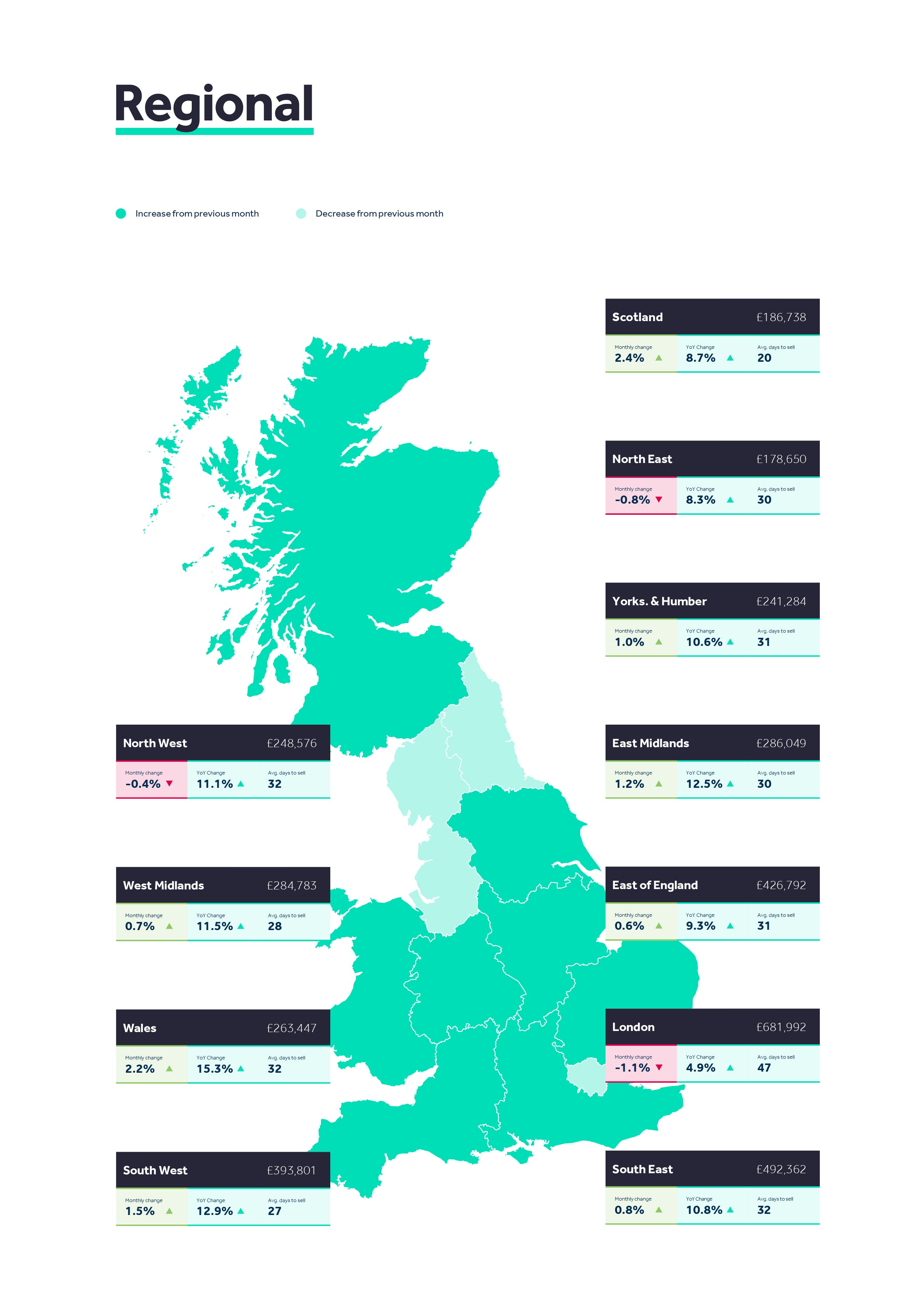
The average price tag on a home has hit a record high for the fifth month in a row.
Across Britain, the average asking price in June stands at £368,614, Rightmove said.
Prices edged up by 0.3 per cent or £1,113 on average month-on-month as the pace of price growth is slowing, the property website said.
Despite interest rates rising and the increasing cost of living, buyer demand for available properties remains very strong, it said.
But it added that following a very strong first half of the year, it is likely that affordability constraints will have a greater influence on market behaviour in the months ahead.
This, alongside more choice coming onto the market for buyers and the usual seasonal variations, means there are likely to be some month-on-month price falls during the second half of the year, Rightmove predicts.
Tim Bannister, Rightmove’s director of property science, said: “Entering the second half of the year, we anticipate some further slowdown in the pace of price rises, particularly given the worsening affordability challenges that people are facing.
“We expect this to bring the annual rate of price growth down from the current 9.7 per cent towards the 5 per cent increase that Rightmove predicted at the beginning of the year.”
Rightmove said it currently takes around 150 days to complete a purchase on average after agreeing on a sale – 50 days longer than at this time in 2019.
There are more than 500,000 homes that are currently sold subject to contract it added, which is 44 per cent higher than it was at this time in 2019 and 39 per cent higher than the pre-pandemic five-year average.

Oliver Gill, director at Kirkham Property in Oldham, Greater Manchester, was quoted in the report as saying: “The market is still performing well and many properties are still selling above asking price, albeit within the last month to six weeks we have noticed a slight slowdown.
“This could be due to more properties coming to market which we are starting to see [while] the current imbalance between high buyer numbers and low stock has corrected itself ever so slightly. Another reason for this could be market sentiment shifting somewhat based on the rising costs of living.”
Rightmove’s report was released as the EY ITEM Club said it expects UK house prices to rise 8 per cent over the course of 2022, followed by growth of 1.8 per cent in 2023 and 1.2 per cent in 2024.
Peter Arnold, EY UK chief economist, said: “In previous economic cycles, a house price contraction would be on the cards with incomes squeezed and a high chance of a market correction after two years of out-sized growth. Instead, house prices are set for a softer landing.”
He continued: “Rising interest rates are unlikely to affect homeowners in the same way they would have done previously, with the dominance of fixed-rate mortgages meaning rate changes will take some time to filter through to borrowers.
“Crucially, the economy is also not seeing the high levels of unemployment that have been a key factor in previous house price contractions.”
It's not just the quantity of houses we're lacking, but the type and suitability of properties coming to market— Nitesh Patel, Yorkshire Building Society
Another report released on Monday, by Yorkshire Building Society, found that around three in five (59 per cent) people believe their current home meets none, or only some, of their needs.
Nearly a quarter (23 per cent) of downsizers, those looking to move into smaller properties in later life, pointed to the lack of suitable or available supply as their biggest barriers to moving, according to the Housing Britain report, which used a survey of more than 1,700 people across the UK in April.
Nitesh Patel, economist at Yorkshire Building Society, said: “Demand for housing has far outstripped supply for years, but it’s not just the quantity of houses we’re lacking, but the type and suitability of properties coming to market – be that new or existing homes.”







